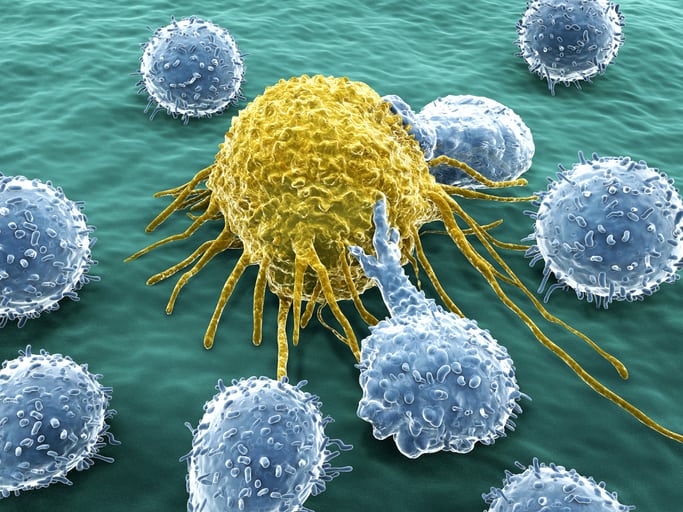Thrombo-inflammatory biomarkers play an important role in the pathogenesis of lymphoma. We aimed to characterize the interrelationship of thrombo-inflammatory biomarkers and blood cellular indices in lymphoma patients.
Ninety-eight lymphoma patient samples were collected from Lymphoma Center of Clinic of Hematology, University of Belgrade, Serbia. Normal controls (n = 50) represented plasma from healthy individuals. Plasminogen activator inhibitor (PAI-1), D-Dimer, factor XIII, C-reactive protein (CRP), microparticles (Mp), Von Willebrand factor (vWF), total protein S, urokinase-type plasminogen activator (uPA), tumor necrosis factor (TNF), 2-glycoprotein I (2GPI), and fibronectin levels were measured utilizing commercially-available ELISA methods. Thrombin generation profile (TGA) was measured using a fluorometric kinetic assay. Platelets, leukocytes, lymphocytes, and neutrophils were measured in conjunction with the complete blood profile.
Statistically significant differences were noted in levels of PAI-1, D-Dimer, factor XIII, CRP, microparticles, vWF, uPA, TNF, 2GPI, fibronectin, and TGA when compared to normal (all values < .001). Platelet to leukocyte ratio (PLA) correlated to TNF and fibronectin ( = -0.31 and -0.53, respectively) and the platelet to neutrophil ratio (PNR) correlated to factor XIII and 2GPI ( = 0.40 and 0.40, respectively).
Plasma samples from lymphoma patients demonstrated a significantly altered thrombo-inflammatory biomarker profile that has notable correlations to blood cellular indices.
The Relationship Between Thrombo-Inflammatory Biomarkers and Cellular Indices of Inflammation in Lymphoma Patients.


